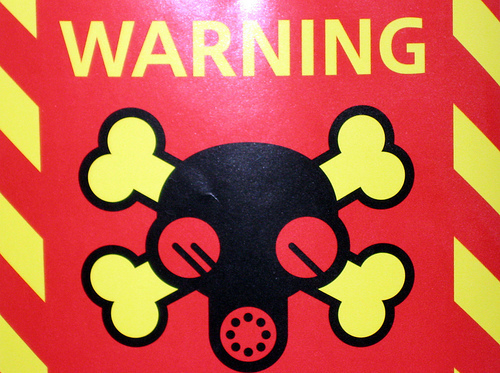Warning! The Social Web May Harm Your Physical & Mental Well-Being
I'm halfway through reading Engage! by Brian Solis and just came across a really great quote from John Freeman that was posted in the Wall Street Journal about the impacts that consuming new media in real-time is having on our well-being and information digesting habits.

In the past two decades, we have witnessed one of the greatest breakdowns of the barrier between our work and personal lives since the notion of leisure time emerged in Victorian Britain as a result of the Industrial Age. It has put us under great physical and mental strain, altering our brain chemistry and daily needs. It has isolated us from the people with whom we live, siphoning us away from real-world places where we gather. It has encouraged flotillas of unnecessary jabbering, making it difficult to tell signal from noise. It has made it more difficult to read slowly and enjoy it, hastening the already declining rates of literacy. It has made it harder to listen and mean it, to be idle and not fidget. This is not a sustainable way to live. This lifestyle of being constantly on causes emotional and physical burnout, workplace meltdowns, and unhappiness.
I like what John is saying and agree that the overlap in personal and work life is becoming increasingly blurred, but I do not entirely believe the claims to the social web increasing the rate of illiteracy. I think the access to a larger variety of immediate news & information has made us better equipped to find and digest higher quality information throughout the day that in the long run benefits our learning. Of course, due to the nature of having to scour through fast-paced activity feeds, it has impacted how we read 'real time news', but I don't think those short-term bursts of skim reading have any long-term impact on our ability to sit down and enjoy reading a long novel, slowly.
Here's another great quote on how the social web is impacting attention spans is this one from Linda Stone, who suggests that the social web is causing more instances of Continuous Partial Attention.
Continuous partial attention describes how many of us use our attention today. It is different from multi-tasking. The two are differentiated by the impulse that motivates them. When we multitask, we are motivated by a desire to be more productive and more efficient. We're often doing things that are automatic, that require very little cognitive processing. We give the same priority to much of what we do when we multi-task—we file and copy papers, talk on the phone, eat lunch—we get as many things done at one time as we possibly can in order to make more time for ourselves and in order to be more efficient and more productive.
To pay continuous partial attention is to pay partial attention—CONTINUOUSLY. It is motivated by a desire to be a LIVE node on the network. Another way of saying this is that we want to connect and be connected. We want to effectively scan for opportunity and optimize for the best opportunities, activities, and contacts, in any given moment. To be busy, to be connected, is to be alive, to be recognized, and to matter. We pay continuous partial attention in an effort NOT TO MISS ANYTHING. It is an always-on, anywhere, anytime, any place behavior that involves an artificial sense of constant crisis. We are always in high alert when we pay continuous partial attention. This artificial sense of constant crisis is more typical of continuous partial attention than it is of multi-tasking
Your thoughts?



